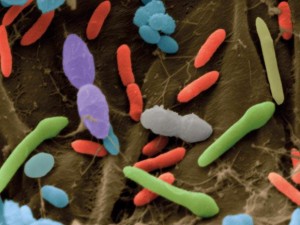Introduction
This article is about “stop obesity”. Being obese is not just a problem that is known as “middle age spread’. It has become an alarming condition that affects all age groups, children, adolescents and adults; it has escalated into a health problem that affects a large percentage of the US population. As this link shows, in 2020 the obesity rate among adults in the US was 42.4%. Another third was obese. That means that more than two thirds of the population exceeded the upper limit of a normal body weight (a body mass index of less than 25.0). Other countries in the Western world share in the record of being the fattest nations: they are Mexico, New Zealand, Chile, Australia, Canada, The United Kingdom, Ireland and Finland. Not every country with high living standards has high obesity rates. Japan and Korea by comparison have obesity rates of 3 to 4%.
Health consequences
The diseases resulting from obesity include high blood pressure, cardio-vascular problems (heart attacks and strokes), and type II diabetes. This results in health expenses spiraling upwards. The excessive weight creates additional problems. Not only the heart and blood vessels face an overload, but the joints are also bearing the brunt in the form of joint diseases like arthritis or back pain. These conditions are not fatal, but they account for less productivity at the work place and they create disabilities. In the public sector obesity presents more problems: how can an obese individual be accommodated in a standard airline seat? How can nursing personnel in a hospital manage to lift or transfer a very heavy patient without a mechanical lift? Obesity can be compared to a snowball that is on a downhill run and if it is not stopped in time, will turn into a deadly avalanche.
Causes of obesity
In the last few years it has become clearer how obesity was created. It originated from the perfect storm that a number of practices of the food industry brought about:
- Processed food has become more prominent in the super market, laden with salt (creating high blood pressure) and sugar (causing diabetes).
- Wheat and wheat products are contained in a lot of processed foods, and if they are not in it directly, food manufacturers add MSG (mono sodium glutamate) to stimulate your taste buds. This leads to food addictions encouraging you to eat bigger portions and to eat more sweet, calorie-laden foods.
Gliadin and sugar stimulate your appetite
- Wheat has undergone forced hybridization in the 1970’s changing the genetic make-up of wheat significantly. The result is much more gliadin, the gooey substance that stimulates your opiate receptors and makes you addicted to food and sweets (Ref. 1).
- Sugar and high fructose corn syrup are a huge problem for our bodies: sugar consumption in any form leads to overproduction of insulin, insulin resistance and diabetes. 10 to 15 years of life can be lost from premature death due to sugar overconsumption. The causes are accelerated hardening of the arteries with premature heart attacks, strokes and kidney damage. Alcohol in its many disguises is also a problem. The body metabolizes it similar to sugar, excess calories from alcoholic drinks are stored as fat.
Oil with omega-6 fatty acids, bovine growth hormone in milk and antibiotic residues in beef
- The oils that are now used to produce baked goods are the cheaper omega-6-fatty acid containing oils derived from safflower, sunflower, soybean, cottonseed and canola. The result is a disbalance of the omega-3/omega-6 ratio in our diet, which causes inflammation in our bodies. This in turn causes heart attacks, strokes, arthritis, asthma, inflammatory bowel disease and Alzheimer’s disease (Ref. 2).
- In the US there are problems with bovine growth hormone in milk and milk products unless you buy organic milk and milk products. This too causes your fat to accumulate as it blocks your own growth hormone receptors. Antibiotic residues in beef from feedlots also contribute to obesity in humans.
We are more sessile
- Add to this the fact that we have become more sessile, driving cars, watching games rather than playing games, watching TV and sitting in front of the computer for hours on end. All this burns up less calories than if you work out in a gym.
Knowing the enemy helps us to fight the causes of obesity. Here is my recipe to counter what the agro-industry has been doing to us.
What can be done to stop obesity?
Cut wheat out of your diet
1. The biggest factor is to cut out genetically modified wheat that is now the only source of wheat around the world. When you cut out all wheat and wheat products from your diet, you will lose 400 calories every day. Ref. 1 describes this in detail and provides 150 recipes of tasty foods. Dr. Davis allows you a fair amount of monounsaturated fatty acids, which makes dieting a lot easier and you will find that once you have lost the necessary pounds, you will keep your weight down easily. How come I know? Because I have done this myself since 2001. Why does it work?
Gliadin from wheat stimulates your opiate receptors
Because gliadin from wheat is an addictive protein that stimulates your opiate receptors in the brain and makes you want to eat more wheat and wheat products, which means taking in more and more calories (Ref.1). It also stimulates your taste buds to eat more sugar and starchy foods. So, you need to cut out wheat.
Watch the glycemic index of your food
2. Next you need to look at the glycemic index of your food. Low and medium glycemic foods are OK to eat, but not the high glycemic index foods. It is clear from this link that white bread, pasta, rice, low-fiber cereals and baked goods are not desirable, because they are high glycemic on the index. On the other hand fruit, vegetables and legumes are desirable food choices, as they are low glycemic index foods. Legumes are higher in their carbohydrate content, and a helping of ca. ½ a cup should not be exceeded. Fruit that are high in fruit sugar (grapes, pineapple, mangoes, papayas, bananas) should be consumed in moderation. Fruit juices present an overload of sugar; just remember that it takes several apples to make one serving of apple juice! The same goes for alcoholic drinks. It likely is responsible for much of the obesity wave.
Eliminate all monosodium glutamate (MSD)
3. Perhaps the most important step is to look at the food that goes into your mouth, eliminate all MSG (monosodium glutamate) and then switch to organic food. I remember that 1/3 of the items on the kitchen shelf and in the fridge had to be thrown out when my wife and I first learnt about this in 2001. We studied the food labels of every food item that was in our kitchen. We added the switch to organic food in the last three years, after hearing about it from Suzanne Somers’ books and at several A4M anti-aging conferences in Las Vegas. Take the time to prepare most of your food that you eat yourself at home from natural, organic ingredients. This way you can avoid sugar and extra salt, which would be present in processed foods.
Watch your oils, cook with extra virgin, cold pressed organic olive oil
4. Watch oils and fat when you cook: extra virgin, cold pressed organic olive oil is your best friend when it comes to cooking Mediterranean type food. Lately there is a trend of cooking with coconut oil, but I think this is a marketing hype (if you decide on coconut oil, make sure it is virgin and fresh pressed, not processed). Ref. 2 explains that it is important to avoid all polyunsaturated oils as they turn rancid and lead to free radicals in your blood and in your fatty organs like the brain. In order to reintroduce the balance between omega-3 and omega-6 fats, it is useful to take 3 capsules or more (up to 6 or 7 per day in persons with arthritis) of a strong, molecularly distilled EPA/DHA supplement daily that will restore your prostaglandins.
Certain fish is healthy
This ensures that no inflammatory reactions take place in your tissues preventing heart attacks, strokes, arthritis, asthma, inflammatory bowel disease and Alzheimer’s disease.
Nutritionists recommend fish as highly desirable as it is a good source of omega-3 fatty acids, which have anti-inflammatory qualities. But unfortunately, there is mercury contamination in predatory fish. I find it difficult to recommend it as healthy unless you are willing to undergo chelation therapy on an ongoing intermittent basis to remove heavy metals. Fish like sardines or wild salmon are the better choices. Tuna, swordfish or shark should never be consumed as their toxic mercury load is dangerously high.
Exercise keeps you healthy
5. Finally, a word about reintroducing exercise. As kids we were more active. You may have played games as a youth. What our bodies need at all times is movement, walking, dancing, in short some form of activity every day. The easiest is to work out in a gym for 1 hour every day (30 minutes of aerobics like a treadmill or elliptical for 30 minutes and isometric exercises like working with machines or weights). Add on top of this whatever you can. This stimulates your metabolism, your blood circulation and rebalances your hormones.
Conclusion
Obesity is a national concern and a concern that affects nations internationally. Bear in mind that the food processors are not on a mission to increase the well being of the consumer, but have the motivation to increase their profits. In the past bad dietary advice added more injury to this situation, when the food science behind diets lacked development. But now we know that a low fat high carb diet does not work; instead a balanced fat, low glycemic index diet as in a Mediterranean diet is what is beneficial. The large amounts of sugar that food processors are currently adding have no place in sensible human nutrition.
Avoid overeating with grains, watch your oil intake
The senseless overfeeding with grain has also presented its results: it has fattened up North America and other nations. We need quality fats (olive oil, omega-3-fatty acids and nuts). Organic food whenever possible is important in order to avoid poisoning ourselves with pesticides, antibiotic residues or bovine growth hormone. Add regular exercise to this and your recipe for treating and preventing obesity is complete.
More about metabolic syndrome (the metabolic changes associated with obesity): http://nethealthbook.com/hormones/metabolic-syndrome/
References
1. William Davis, MD: “Wheat Belly Cookbook. 150 Recipes to Help You Lose the Wheat, Lose the Weight, and Find Your Path Back to Health”. HarperCollins Publishers LTD., Toronto, Canada, 2012.
2. David Perlmutter, MD: “Grain Brain. The Surprising Truth About Wheat, Carbs, And Sugar-Your Brain’s Silent Killers.” Little, Brown and Company, New York, 2013.







